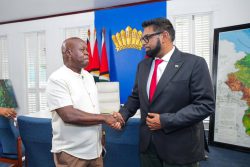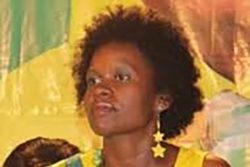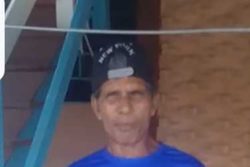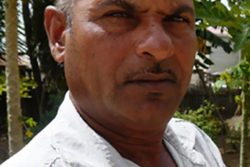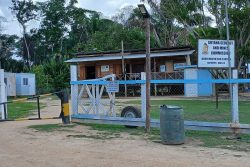CARACAS (Reuters) – Venezuela’s government and opposition yesterday reached tentative deals in the areas of elections and foreign aid as part of a Vatican-backed dialogue process, though the agreements fell far short of initial opposition demands.
Allies of President Nicolas Maduro will consider letting foreign donors provide food and medicine to the crisis-hit country and work toward naming new directors to the national elections authority, which the opposition says favours Maduro.
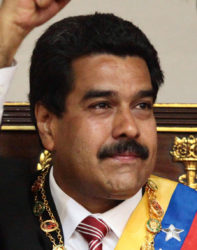
“We agree to promote respectful political action,” said ruling Socialist Party Director Jorge Rodriguez, reading from a conciliatory joint statement agreed to by both sides. “The common good is above our legitimate differences.”
The steady decay of the OPEC nation’s economy and a growing political standoff over a referendum on Maduro’s rule led both the Vatican and US diplomats to set up a dialogue in late October.
The two sides will meet again on December 6, contrary to the opposition’s vow to walk away from the talks if the government did not set in motion a recall referendum on Maduro’s rule and release more than 100 jailed opposition activists.
They will work together to name two new members to the five-member elections board, which last month scuttled an opposition recall effort and escalated the country’s political standoff.
The government allowing foreign assistance effectively acknowledges the dire situation in Venezuela, where millions are struggling to eat three meals per day.
But rather than agreeing to the release of more than 100 jailed opposition activists, the joint statement made a vague nod to releasing detainees – without providing names or numbers.
The agreement also involves holding new elections for legislators from the state of Amazonas who were suspended from their posts by a court sentence last year. Maduro’s critics yesterday called that an overly generous concession.
“I can’t stay quiet as I watch the government give more oxygen to the dictatorship,” wrote opposition politician Reinaldo Diaz in a tweet that was retweeted by the official account of hardline opposition party Popular Will.
The dialogue has been hailed in the international community for bringing the two sides to the table. But the talks may break down once the two sides begin serious discussions on the issue of the recall referendum, which Socialist Party officials have repeatedly ruled out.
